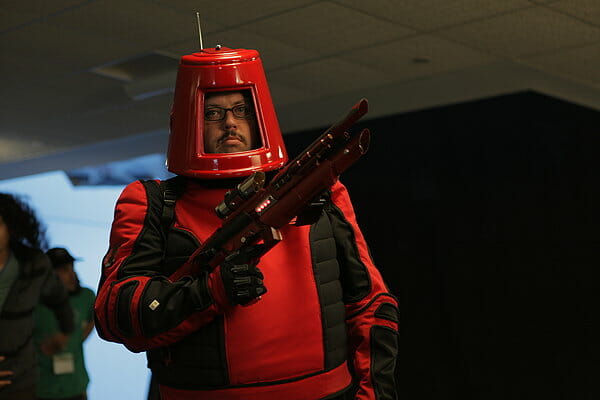The History of Future Folk

It seems that some extraterrestrials not only come in peace but also in two-part harmony.
Granted, that isn’t how things start out in The History of Future Folk. As we’re introduced to General Trius (Nils d’Aulaire), he’s a lone figure on a Brooklyn dive bar’s stage. With a banjo slung across his crimson spacesuit, he proves a particularly confessional songwriter, singing wistfully of his homesickness for the “magic sponges and sulphur pits of doom” found on his planet, Hondo. Meanwhile, the assembled hipsters can only fold their arms and roll their eyes. Stardom doesn’t come easy for spacemen.
Back at his modest home (where he’s known as “Bill”), Trius finds a rapt audience in his young daughter (Onata Aprile), who never tires of hearing how her father found his way to Earth. Originally intending to detonate a doomsday device, the feared warrior fell in love with our music and deemed it reason enough to spare humanity.
“Engage,” Trius whispers to himself before that opening number. Staying true to its main character’s word, the highly amusing Future Folk is at its most charming when it’s depicting the persuasive power of music. In the film’s funniest visual sequence, Trius—in full spacesuit—involuntarily shimmies to the muzak playing in a big-box store. In its most unexpectedly touching, he beams The Chordettes’ “Lollipop” into the cosmos in hopes that it’ll dissuade his people from mounting another offensive against Earth.
-

-

-

-

-

-

-

-

-

-

-

-

-

-

-

-

-

-

-

-

-

-

-

-

-

-

-

-

-

-

-

-

-

-

-

-

-

-

-

-








































